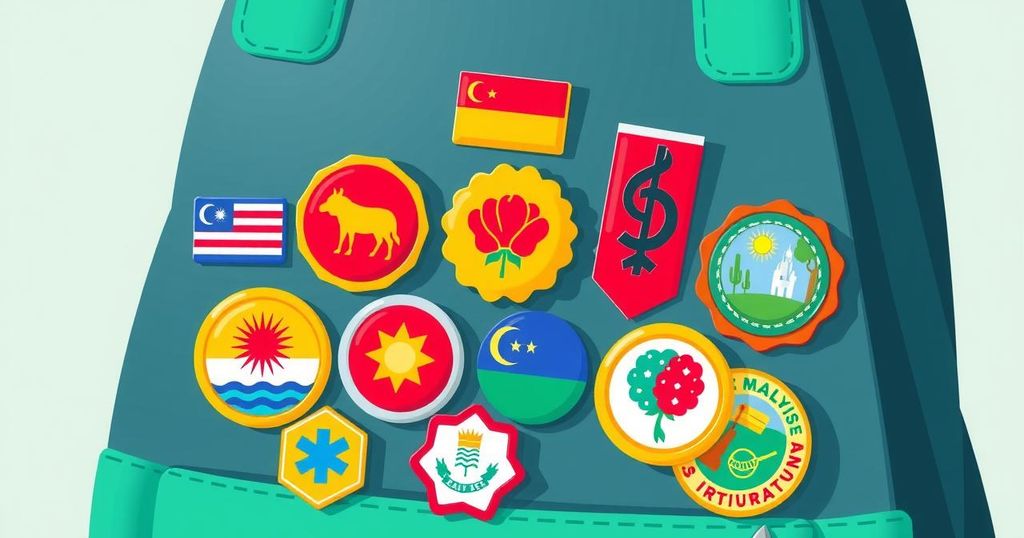Malaysia’s Jalur Gemilang Badges: A Step Towards National Identity or Mere Symbolism?

The Malaysian Ministry of Education has mandated students to wear Jalur Gemilang badges daily to promote national pride. Compliance by April 21 requires adherence to specific measurements. While this initiative aims to instill patriotism, the essence of national identity should be reinforced through dialogue and reflection, rather than mere symbolism.
In a recent directive from Malaysia’s Ministry of Education, students are instructed to wear Jalur Gemilang badges daily, regardless of their attire. This initiative aims to foster national pride, with a compliance deadline set for April 21. As parents prepare for the upcoming holiday, they are advised to adhere to the specific measurements of the badges to avoid penalties from disciplinary authorities.
Patriotism is often cultivated through rules and rituals around the world, as nation-states require constructs that build a collective identity. The historical separations between Malaysia and Indonesia exemplify the complexities of national identity, influenced by colonial legacies. Similar situations are observed globally, where historical and geopolitical divides shape national boundaries and identities.
The introduction of the badge rule in Malaysian schools has its merits, allowing students a tangible symbol of national pride. While the physical weight of a badge seems insignificant, the challenge lies in the emotional weight of national sentiment. Ensuring health and well-being goes beyond mere symbols or mandates; it is critical to nurture genuine national affection.
In my experience running an arts project focused on patriotism, I have observed that artistic expressions often feature repetitive national symbols, such as flags, without deeper personal interpretations. This raises concerns about whether young Malaysians are genuinely reflecting upon their national identity or merely following imposed narratives.
Educational institutions must engage students in meaningful discussions about what it means to be Malaysian, rather than simply encouraging memorization of nationalistic ideals. A true civic education fosters conversations rather than dictatorial curricula. The very essence of citizenship should embrace dialogue and introspection.
Ultimately, constructing a national identity requires more than mere badges or symbols; it necessitates open discourse. In Malaysia, where diversity spans 33 ethnicities, discussions regarding identity must be embraced rather than avoided. Discussions that include contradictions can foster a deeper understanding of our national narrative, ensuring that the symbols we bear hold true meaning in our lives, far beyond their physical representations.
The recent mandate for Malaysian students to wear Jalur Gemilang badges highlights ongoing discussions around national identity and patriotism. While the intention to foster patriotism is commendable, it is crucial that such measures are complemented by meaningful discourse and introspection about national identity. Mere adherence to symbols without understanding their significance may not cultivate the deep-rooted affection for the nation we seek. Genuine engagement in discussions around identity and shared experiences will ultimately strengthen the fabric of Malaysian society.
Original Source: www.malaymail.com








